Citation
My congratulations to Professor Carl Wieman on the 2020 Yidan Prize for Educational Research.
The vision of Dr Charles CHEN Yidan is to create a better world through education, and the mission of the Yidan Prize is to change the world by acknowledging the changemakers. I don’t know of anyone who stands more for change and transformation in education, for innovation, and for a commitment to advance learning through education research, than Carl Wieman.
When you think of Carl, you think of the Nobel Prize winner in physics who made the predictions of Bose and Einstein visible and tangible. But for the past two decades, his passion has been with education. Currently at the Graduate School of Education at Stanford University, he’s a highly respected scholar who has not just been visionary in his research approach to science education, but also impactful in spreading and scaling his ideas.
You know, every child loves science; it’s about understanding nature, about comparing and contrasting, trying things out and testing ideas, figuring out relationships and cause and effect. But as people grow older, many turn away from this early love, considering the natural sciences to be an abstract world of formulas and equations that is unrelated to their lives and dreams. And a lot of that has to do with how we learn and teach science. What we learn in school science is often a mile wide but just an inch deep, quickly memorized and then forgotten, and unrelated to the real world around us. And amidst all the facts and figures that we learn in school and at university, we too often lose the idea of what it means to think like a scientist, to build an hypothesis, to design an experiment, or to distinguish questions that are scientifically investigable from those that are not.
Carl has sought to fundamentally change that, not just by bringing real passion to science teaching — lots of other people do that too – but also by bringing a rigorous scientific approach to the understanding and improvement of science education. Many of us consider education an art, with talented and passionate educators making tremendous efforts each day to teach our children and build our future. But good education requires more than that. It too benefits from scientific exploration, testing novel questions and ideas, and discovering what produces the outcomes we seek. And that additional extra is exactly what Carl Wieman’s work is about. He’s used science to understand how people learn science, and then built both an evidence base and powerful techniques that help educators shift away from teaching the way that they were taught, towards how scientific research teaches us to teach science.
He has not just been doing that in an ivory tower for himself. Instead, he is inspiring scientists and educators around him to collaboratively establish what students should learn; to scientifically measure what students are actually learning, to adapt instructional methods and technology to improve learning outcomes, and to adopt what actually works.
Carl also understands that to transform education, we need effective bridges between research, practice and public policy. In the United States, he served as the Founding Chair of the Board on Science Education at the National Academy of Sciences. He advised US President Obama as Associate Director of Science at the Office of Science and Technology Policy on STEM education research and the country’s education initiatives. And he worked with many national governmental agencies including the National Science Foundation, the National Institutes of Health, and the Department of Education.
Not least, he has thought deeply about ways to make science-based teaching and learning scalable through innovative technology-based simulations, and he has used repeated rounds of scientific experimentation with students to perfect these techniques. In the times of a pandemic which has made digital resources the lifeline for education, the work of Carl Wieman sets an example for how we can use technology not just to conserve traditional teaching, but to transform it.
Of course, the idea of simulations isn’t new to science education, there are plenty of examples where students can set some parameters and then animate some scenario. But that’s about thinking inside the box, not outside the box, about reproducing what we know, not about extrapolating from what we know and applying our knowledge in novel situations. His simulations focus on active learning in interactive environments in which students learn through exploration and discovery, build connections between science and the real world, and discover cause and effect relationships the way that scientists do. His scientifically rigorous simulations represent a fundamentally new pedagogical tool for reaching learners who do not have access to physical laboratories. They have also spawned many lines of pedagogical research on how to best use such resources, from all around the globe. And in fact, this work isn’t just scalable, you can actually see the scale of his work with half a billion downloads of his simulations and translations into 85 languages.
Let me add that Carl's education research is not just important, it is crucial at this particular moment of time. During these months of the pandemic, we’ve all felt the powerful forces of science and mother nature. Those who remained ignorant of science or gave precedence to comfortable beliefs, ideology or politics have paid a steep price for that. You cannot sweet-talk mother nature, and you cannot spin her. Mother nature always follows the principles of science, so we better help people understand these. An excellent education in science, building itself on a foundation of the education sciences, will serve the hopes and aspirations of individuals, economies and nations. It will improve and save many lives and is one of the great investments a society can make in its people and its future. Carl gives us powerful tools for doing that well.
Andreas Schleicher
Panel Head, Judging Panel for Education Research, Yidan Prize












